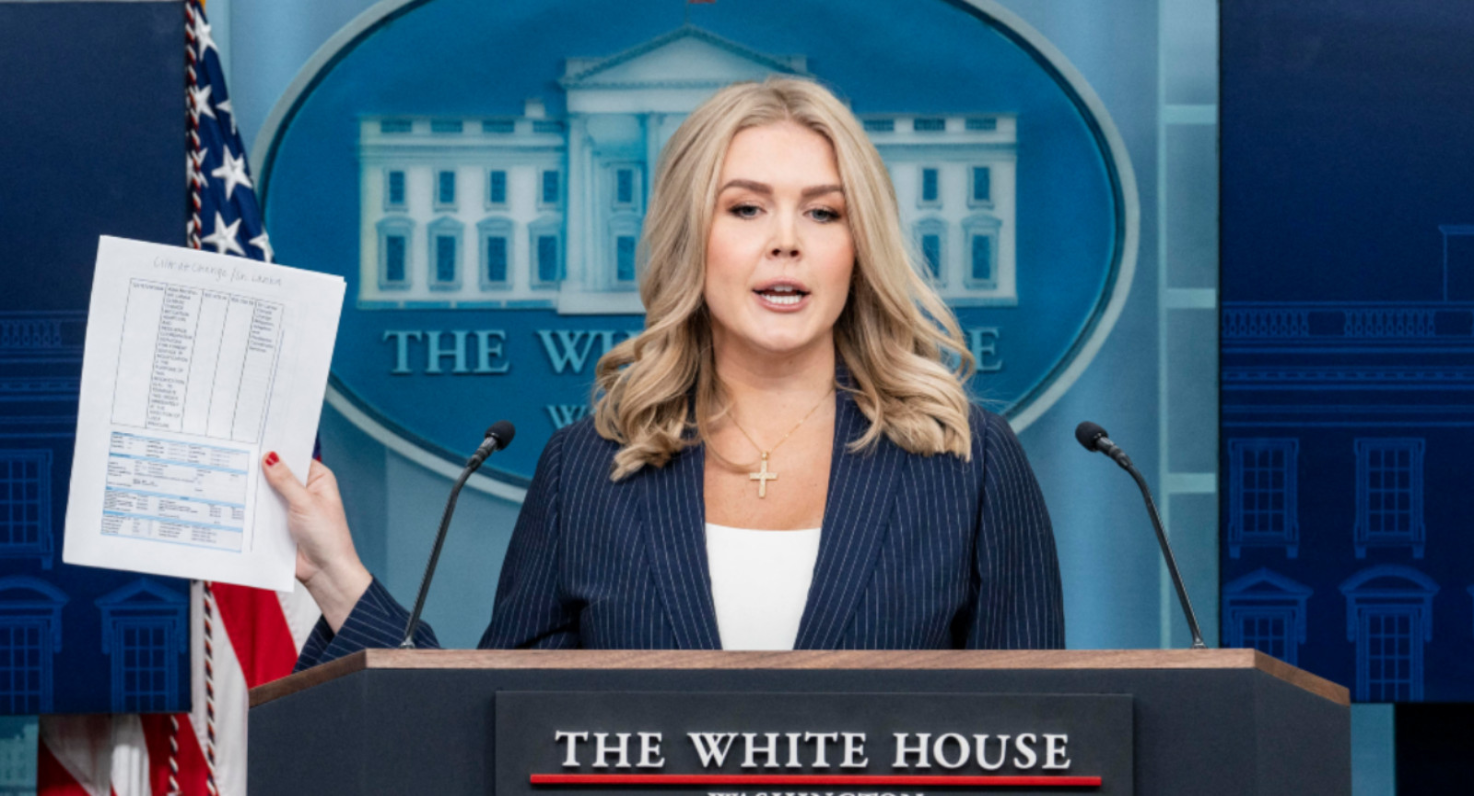March 24, 2025 — Washington, D.C. — White House Press Secretary Karoline Leavitt has delivered a forceful rebuke of U.S. District Judge James Boasberg after his ruling to temporarily halt deportation flights involving suspected members of the Venezuelan gang Tren de Aragua. The decision, which delays the removal of individuals deemed national security threats, has prompted backlash from the Trump administration and calls for the judge’s impeachment.
Controversial Ruling Sparks Political Firestorm
Judge Boasberg issued a temporary restraining order (TRO) last week that blocks deportation flights until further legal review can be conducted. The ruling challenges the administration’s use of the Alien Enemies Act—a centuries-old statute that allows the executive branch to expel foreign nationals considered dangerous.
Leavitt condemned the ruling, stating, “Judge Boasberg is obstructing national security efforts under the guise of legal review. His actions delay justice and expose American communities to potential harm.” She also pointed to Boasberg’s political ties and appointment by President Barack Obama as evidence of possible bias.
Impeachment Proceedings Introduced
In response, Rep. Brandon Gill (R-TX) introduced articles of impeachment against Judge Boasberg, accusing him of “undermining executive authority and placing politics above public safety.” While the likelihood of impeachment remains low, it underscores growing tensions between the judicial and executive branches.
Gill stated, “Judges are not above the law. When their rulings threaten national security, Congress has a duty to act.”
Immigration and the Alien Enemies Act
The administration has invoked the Alien Enemies Act to justify expedited deportation of suspected gang members. However, critics argue that applying this law—originally designed for wartime enemies—to criminal organizations may stretch its intended purpose and skirt due process protections.
Legal experts note that while the executive holds broad powers under this law, courts are tasked with ensuring actions taken are constitutional and consistent with human rights norms.
Separation of Powers in the Spotlight
This case highlights a constitutional struggle between the branches of government. The White House argues that swift deportations are necessary to maintain security. In contrast, the judiciary insists that even in matters of national security, legal standards must be upheld.
Judge Boasberg’s ruling reflects the judiciary’s role in preserving checks and balances. In his decision, he stated that “judicial review of executive actions is essential in a constitutional democracy.”
Free Speech, Judicial Independence, and Political Fallout
Critics of the impeachment effort argue it sets a dangerous precedent. Civil liberties groups warn that threatening judges with impeachment over controversial decisions could undermine judicial independence and politicize the bench.
Legal analyst Marcia Kleinman remarked, “Impeachment is not a tool to reverse rulings. It’s a remedy for misconduct—not for differences in legal interpretation.”
Broader Immigration Implications
This legal battle adds fuel to the broader national debate on immigration enforcement. The Trump administration has prioritized aggressive deportation strategies, while civil rights advocates stress the need for judicial oversight and humane immigration policy.
Meanwhile, immigration watchdogs and advocacy groups continue to monitor the treatment of foreign nationals under executive orders, with Boasberg’s decision seen as a possible check against what they view as overreach.
Conclusion: Legal Showdown Looms
As impeachment proceedings and legal appeals advance, the clash between Karoline Leavitt and Judge Boasberg reflects the broader tension between presidential authority and judicial review. The outcome may significantly impact how future administrations approach deportation and executive enforcement powers.
With the courts, Congress, and the White House all weighing in, this case will likely shape the national discourse on immigration, constitutional law, and the limits of executive power for years to come.

